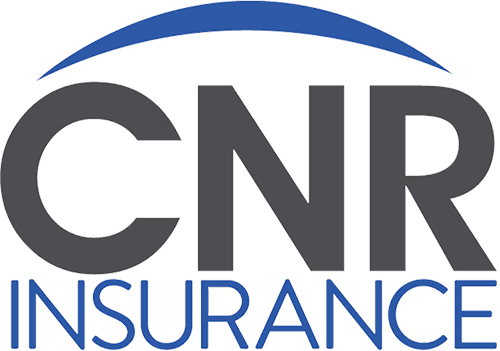Americans have a mixed attitude toward insurance fraud. Some ignore it. Some support it. Some even commit it. But the bottom line is it costs $80 billion per year, according to the Coalition Against Insurance Fraud. That’s enough to buy three million new cars. Launch 62 space shuttle missions. Or feed breakfast to nearly 50 million people—for a year.
It turns out, Homer Simpson and other pop culture icons may be partly to blame for American’s lack of concern.
Homer is the hapless and hopeless cartoon dad on Fox TV’s “The Simpsons.” He illustrated a common Hollywood portrayal of insurance fraud in the season 9 episode, “Dumbbell Indemnity.” The plotline: Homer’s friend Moe needs money to impress a girl, so he pulls Homer into a conspiracy to commit insurance fraud. While Homer and Moe learn a lesson in the end, the show paints faking a car theft as downright laughable.
Not so funny, says Dave Rioux, president of the International Association of Special Investigation Units. Rioux, who leads ERIE’s fraud fighting efforts, cites this episode, a recent Toyota commercial and an act on ABC TV’s “Samantha Who?” in 2007 as
a few of countless pop culture examples that turn insurance fraud into comedy. They work because they play on the fact that many Americans view fraud as hilariously naughty—perhaps justifiable—and not worth more than a giggle and a shrug.
The Coalition Against Insurance Fraud, in a recent study, found that to be true. According to the study, two out of three Americans tolerate some form of
insurance fraud. And, two out of five Americans want little or no punishment for
insurance crooks.
This tolerance for the crime means that while a few fraudsters attempt to get financially fat, the rest of America pays the price. It’s time to call out that
elephant in the room.
First and foremost, when it comes to insurance fraud, most people don’t make the connection to their own pockets—they think insurance companies are picking up the tab. What’s needed, says Dennis Jay, executive director of the Coalition, is to get the message out about how much fraud actually costs each and every one of us.
The Coalition calculates that the $80 billion of fraud costs that arise each year breaks down to nearly $1,000 annually for every family. That comes out of your family’s income through factors such as increased rates to cover the cost of fraud
or higher taxes to pay for fraud investigations and prosecutions.
There are other “hidden” costs as well, such as lost revenue. Businesses lose millions in income due directly to fraud and higher premiums, hurting their ability to be profitable, grow and employ people. Also, staged accidents and arsons injure or kill innocent victims every year.
The bad economy may be making things worse.
ERIE’s chief fraud investigator Rioux calls the current climate of high unemployment, plummeting property values and shrinking personal wealth a “perfect storm” when it
comes to insurance fraud. Statistics concur. The National Insurance Crime Bureau recently reported a significant rise in referrals of questionable claims to insurance companies between 2008 and now.
Jay agrees that “the poor economy may be driving normally good people to do bad things.”
He tracks the trend on a daily basis. “I’m amazed every day when I see these stories,” Jay says. “I’m just now reading about a school board member from Mississippi who’s being charged with fraud. Yesterday, it was a housewife in New Jersey who got her nephew to dump her Ford Explorer. We didn’t see this happening as often even a year ago.”
Rioux has a name for these newly-minted fraudsters—desperadoes. A desperado could be a friend, relative, neighbor or co-worker who is acting out of desperation rather than greed. This type of perpetrator sees himself or herself as a victim of misfortune, hurt by a shaky economy and financially overextended.
Soon, the desperado begins to justify actions he or she would have never considered in the past. This type of perpetrator considers exaggerating—even staging—a loss, just to dig out a little from the avalanche of money problems.
Jay worries such desperadoes will be viewed in a sympathetic way, with an increasing segment of the general public deeming their desperate acts as justifiable considering the circumstances.
To uncover the truth about how Americans view fraud, the Coalition conducted extensive research, delving into the mindset of Americans. The result of the study—”The Four Faces of Insurance Fraud”—offers the latest insight on consumer attitudes toward the crime. The theory: Americans generally hold one of four broad attitudes toward insurance schemes.
- Critics have a high tolerance for fraud and believe the insurance industry is to blame.
- Realists have a low tolerance for insurance fraud but realize that it occurs.
- Conformists are fairly tolerant of insurance fraud and believe many people commit fraud.
- Moralists have the lowest tolerance for the crime.
The group of adults who tolerate insurance fraud the most—the so-called Critics—grew significantly over the last decade. More than one in four people fall into the Critics category, up from one in five people just 10 years ago. And the only group that shrunk was “The Moralists,” those people who tolerate insurance fraud the
least. That group fell from one-third of all adults 10 years ago to a one-quarter of
adults today.
Reversing that trend will require increased efforts to raise awareness about the prevalence, costs and risks of insurance fraud. Companies such as ERIE are at
the forefront of the charge.
“ERIE goes a step further in trying to engage Customers to make them aware of the problem,” says Jay, who is also an ERIE Customer. “It creates an environment that rewards honesty. That’s reflected in the rates we pay.”
ERIE was one of the first insurers to use advanced fraud technology, including predictive modeling, which uses sophisticated analytics to identify potentially fraudulent claims or suspicious activity.
The technology is complemented by a full staff of investigators, giving ERIE “a tremendous edge in identifying fraud and putting us in a position to be proactive instead of simply reacting,” Rioux says.
The focus on preventing, identifying and prosecuting fraud as often as possible
has saved ERIE money, and in turn, helped keep rates more competitive for
our Customers.
And Rioux is confident that ERIE’s commitment to fraud prevention and awareness has would-be criminals thinking twice before trying to beat the system.
“Those involved in organized fraud are opportunistic,” Rioux says. “They know which companies lack the tools necessary to detect and combat fraud. For companies like ERIE, an aggressive stance on fraud is a deterrent factor.”
ERIE also works with the industry, consumer groups, government and law enforcement to crack down on fraudulent activity and raise awareness about
fraud and its heavy toll on everyone.
Jay says his organization is seeing promising trends among the 18- to 27-year-old demographic group, which has shown potential to develop a lower tolerance for unethical behavior than some slightly older demographics.
Unveiling the elephantAnd Rioux is heartened by a letter he received from a homeowner who refused to take part in a hail damage scam. In the case, salespeople were going door to door claiming that they had detected “microscopic” hail damage. They told homeowners to file a claim with their insurance company in order to get new siding installed.
“I would love to have free siding, but the cost of committing insurance fraud is just too high,” he wrote. “I would rather have my old, but intact, siding and a clear conscience than to have to worry that an investigator will be around to evaluate my claim—or that my children will believe the difference between right and wrong
is based on how it can benefit me.”
The more people who identify—and report—fraud, like this homeowner, the
easier it will be to expose the elephant. And, that means in the end a better use
for $80 billion.
Have you seen or suspected fraud?
If you have—or you ever do—call ERIE’s 24-hour Fraud Hotline at (800) 368–6696
or e-mail fraud.finders@erieinsurance.com. All tips are anonymous. Go to erieinsurance.com/about for more information on how ERIE fights fraud and
how you can help.

